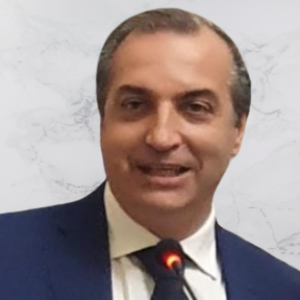Title : Phage therapy in clinical practice: Experience in chronic bone infections
Abstract:
Difficult-to-treat infections have led to a renewed interest in phage therapy as adjunct to conventional surgical and antimicrobials treatments. Chronic bone infections are biofilm-related infections difficult to eradicate; in vitro data indicate that phages are active against biofilms. Clinical phage treatment experiences with prosthetic joint infections, spinal hardware infection, trauma-related infections and craniectomy-related infection have been published with high successful clinical outcomes. We present our experience with phage therapy in three chronic bone infection cases who have failed multiple surgical interventions and prolonged antibiotic therapy. All the patients received phage products from Eliava Phage Therapy Center Tbilisi, Georgia.
Case presentations
Case 1: a 47 years old man with right tibia chronic osteomyelitis after bone fracture; a Pseudomonas aeruginosa isolate grew from infected bone fragments with no resistance to all anti-pseudomonas antibiotics; a long antibiotic therapy before with ev ceftazidime and after with oral ciprofloxacin was started. After several debridement interventions a tibia pseudarthrosis was resected and external fixators were applied; again Pseudomonas aeruginosa was isolated and a fistula persisted on the leg. After phagogram, phage treatment was applied by os and by fistula. The phage cocktail was integrated with a preparation against Staphylococcus aureus after isolation from fistula. After 4 weeks of phage therapy the fistula closed and after 4 years there isn’t signs of infection.
Case 2: a 21 years old man with chronic right femur osteomyelitis after bone fracture by car accident. Initially it was treated with an intramedullary nail, that was removed after 1 year. After other 3 years he had a surgical curettage of right femur for Pseudomonas aeruginosa osteomyelitis. Despite antibiotic treatment there wasn’t improvement and a new surgical curettage with complete old cement removal was done; Staphylococcus epidermidis was isolated in 5 specimens and fragments. He completed oral phage treatment for both microorganisms (Pseudomonas aeruginosa and Staphylococcus epidermidis) according to the phagograms, in association with targeted antibiotic therapy. After 18 months from phage and antibiotic treatment there isn’t signs of infection and the patient resumed bycicle agonist activity. He suffered a stress fracture of the femor during exercise and underwent ostheosynthesis with plaque. All intraoperative swabs were negative for infections, and he fully recovered without any medical treatment.
Case 3: a 25 years old woman with chronic operculum craniectomy-related infection by Pseudomonas aeruginosa. At 1 year old an hypothalamus-chiasma astrocytoma was removed and she was impaired with panhypopituityrasm, bilateral blindness and left hemiparesis. Soon after the bone operculum was removed for Pseudomonas aeruginosa infection; despite prolonged antibiotic therapy and numerous curettage interventions (almost 20 until now) the craniectomy-related infection persisted. She had a ceramic operculum with a persistent fistula when a targeted phage treatment for Pseudomonas aeruginosa was started by topical way (through the fistula) and os. After 4 weeks the fistula was dry and after 1 year there isn’t signs of infection; in addition she is employed as a secretary.
Audience take away:
- Chronic bone infections are difficult-to-treat infections because are biofilm-related infections and antibiotic therapy alone my be not enough to cure;
- Phage therapy may be a reliable therapeutic option for these difficult-to-treat infections;
- It’s necessary to increase the research on phage therapy and to know where to place phage therapy on the treatment management of infections (until now phage therapy is possible only as compassionate use or off-label indications).



